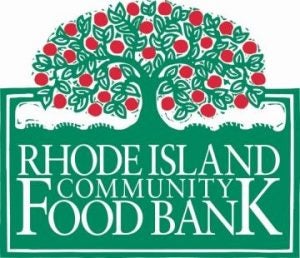Surveys help to identify gaps in services and needs of patrons
By Allie Lewis
Psychology students in the College of Health Sciences surveyed hundreds of food bank patrons to learn the challenges they face in accessing proper nutrition to better identify gaps in food bank procedures and improve service. Many of the people accessing local food banks face a number of challenges, from a lack of knowledge on how to prepare nutritious food, to dealing with the stigma of receiving assistance, to a lack of transportation. Having to lug groceries onto the bus was a common theme among patrons.
“It was an eye-opening experience,” said senior Elizabeth Martinelli, who took a lead role in the project. “I wish the people who are voting against welfare and food banks and food stamps … I wish they saw it. The people we saw were hard-working, and the majority of them were not unemployed.”
The project originally began as a class effort for Research in Experimental Psychology, in which students helped improve an already existing survey, and learned how to orally administer them.
“As someone who wants to go to graduate school for psychology, getting research experience can be difficult, and this class was an awesome opportunity,” Martinelli said.
The class came with some challenges, beginning with convincing patrons and volunteers to speak. Many were hesitant to take part at first, believing the survey may be used to justify government cutbacks on services.
“We had to make it really clear that we were there to help them,” Martinelli said. “It was questions about how often they used the food bank, things they’d like to see; and honestly, the things I learned were crazy.”
Not only were some patrons reporting that the food they were receiving wasn’t fresh, but that they’d felt disrespected at a select few branches.
“This is not their favorite part of the week,” Martinelli said. “Grocery shopping isn’t anyone’s favorite part of the week, but when you have to do it through this, it’s definitely not a place you want to be treated poorly.”
 The study follows a similar one administered last year at the Jonnycake Food Bank in Peacedale, where some of the survey suggestions had already been administered — such as offering cooking classes, nutrition classes and even providing transportation, Martinelli said.
The study follows a similar one administered last year at the Jonnycake Food Bank in Peacedale, where some of the survey suggestions had already been administered — such as offering cooking classes, nutrition classes and even providing transportation, Martinelli said.
The complex research took longer than expected and could not be finished before the end of the semester. Martinelli took it upon herself to finish the project on her own time, taking on the data entry process, and teaching other psychology students she recruited. She also translated the survey into Spanish to reach a greater audience.
“Liz has been an integral part of the team and the driving force behind an extended data collection,” said Assistant Research Professor Andrea L. Paiva, Ph.D. “Liz is an amazingly dedicated, focused and driven undergraduate student.”
The research Martinelli was able to conduct has already begun opening up new doors for opportunity and employment. She is working as a therapist liaison for the Center for Autism and Related Disorders, and recently submitted the paper she helped author to the center’s research division.
“I use what I’ve learned here so much,” Martinelli said. “What I’ve learned here has been so beneficial in being able to grow so quickly at the company.”
She also attributes her success to the help and support she’s received from the faculty of the Psychology Department along the way.
“I’m thankful to have met Doctor Piava because not only has she been an amazing teacher, but an amazing mentor,” Martinelli said. “She and Doctor [Sara] Cottrill have been absolutely amazing.”
Allie Lewis is a student intern in Communications for the Academic Health Collaborative.

